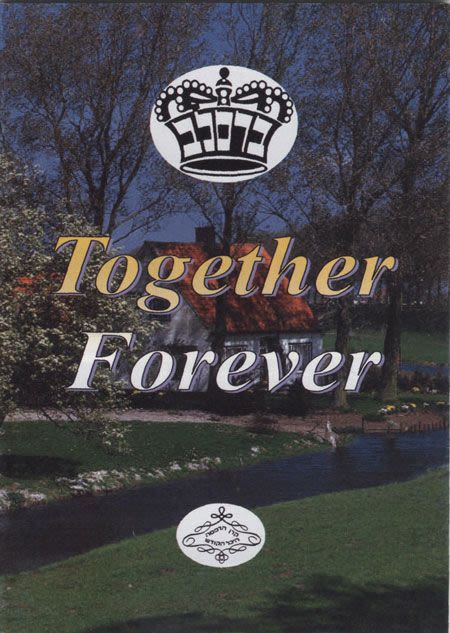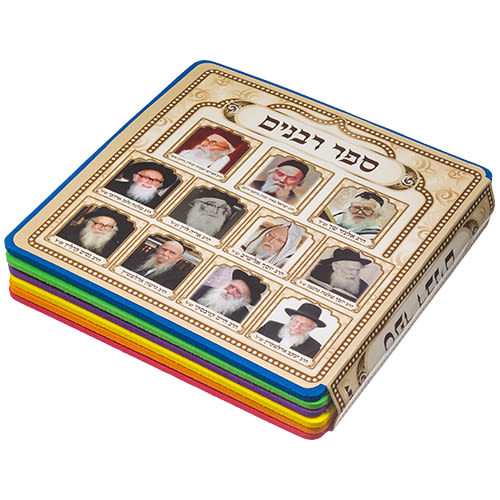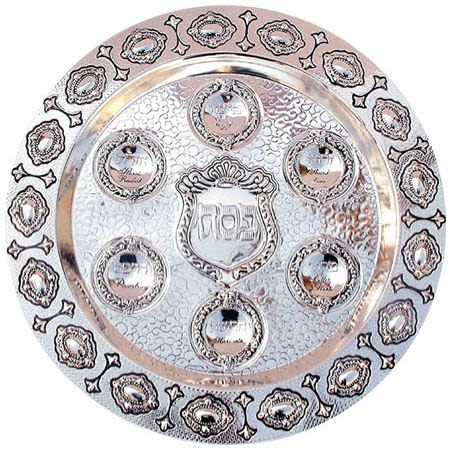
Chayei Sarah: Sunrise and Sunset
Before Hashem causes the sun of a tzaddik (righteous person) to set, he causes the sun of the next tzaddik to rise. We cannot be left without the light of the tzaddik…

Parshat Chayei Sarah
This week’s parashah (weekly Torah portion) is significant for women, as it portrays the transmission of “the blessings of the tent” from Sarah to Rivkah, the first two of our righteous mothers, the pillars of the house of Israel. Our Torah reading depicts how Sarah handed down the virtues of Jewish womanhood to Rivkah. This began the chain that has been transmitted from generation to generation until today. The more we understand their personalities, the closer our connection to the traditions they established.
“TZADDIKIM ARE CALLED ALIVE AT THEIR DEATH”
“Sarah was a hundred and twenty seven years old: these were the years of Sarah's life” (Bereishit 23:1). Malbim explains that only when a person passes away can the quality of one’s life be determined. As long as she is still alive, one never knows whether she may come to sin and fall from her previous spiritual level. At Sarah's death, it became known that all of her one hundred and twenty-seven years were equally good, as Rashi learns from the apparently redundant phrase: “Shnei Chaye Sarah” – “years of Sarah's life.” Bereishit Raba 58:1 discusses Sarah’s equanimity, as described in Tehillim 37:18: “Hashem knows the days of the perfect, and their inheritance is forever. Just like they are perfect so are their days.” Avraham lamented over Sarah by reciting the words of the “Woman of Valor” in her praise (Midrash Tanchuma, Chayei Sarah 4). Her timimut (perfection) made Sarah worthy of being eulogized by these verses, symbolizing perfection since they are written acrostically from “alef” to “tav.”
BEYOND THE CHANGES OF THE TIME
Sfat Emet explains the words of our Midrash Raba as follows: It is a great virtue to maintain all our days in equanimity like Sarah. The beginning of her life bore many difficulties such as famine, infertility and being taken captive by Pharaoh and Avimelech. Only in the end of her life did she experience many blessings. Nevertheless, she didn't change with the ups and downs of her life. Therefore, it says about Sarah: “She bestows good and never bad all the days of her life” (Mishlei 31:12). Since her perfection was not affected by the changes of time, she was able to withstand any test. By transforming the negative aspects of her life into good, she was able to rectify the sin of Chava, who introduced evil into the world.
THE BEST OF ALL AGES
“…One hundred years, twenty years and seven years” (Bereishit 23:1). Why does the Torah break up the account of Sarah’s years as if to say that each period of her life involved a separate entity? According to Rashi, this is in order to teach us that each stage of her life stands on its own. When Sarah was a hundred years old, she was free of sin like a twenty-year-old. At the age of twenty, she was beautiful like a seven-year-old. The age of twenty is usually the prime of beauty, and therefore, Adam and Chava were created to be this age (Bereishit Raba 14:7). Nevertheless, Rabbeinu Bachaya explains that Sarah’s beauty continued to increase at the age of twenty, just like a seven-year-old, who is constantly growing and becoming more beautiful. Maharal emphasizes that the Torah does not allude to her physical beauty alone. Sarah's extraordinary beauty teaches us about her spiritual purity. In the same way that Moshe Rabbeinu's spiritual attainments imparted youthful vitality to his body: “Moshe was a hundred and twenty years old when he died: his eye was not dim, nor his natural moisture abated” (Devarim 34:7). Likewise, Sarah’s spiritual purity enabled her to continually possess the best qualities of all ages.
THE BLESSINGS OF THE TENT
After the death of Sarah, her lack was sorely felt until Rivkah came and revived her spiritual heritage: “Yitzchak brought her into his mother Sarah's tent, and took Rivkah, and she became his wife: and he loved her: and Yitzchak was comforted after his mother's death” (Bereishit 24:67). Rashi comments that when he brought her into the tent, she became exactly like his mother Sarah. While Sarah was living, a light burned in the tent from one Sabbath eve to the next. There was a continuous blessing in her dough (symbolizing the blessing of sustenance) and the Cloud of Glory was always hanging over the tent (a sign of Divine protection). Since her death, all these blessings had ceased. Now that Rivkah entered the tent, they reappeared. According to Maharal, the special mitzvoth which women perform merit these blessings. The blessing in the dough corresponds to the mitzvah of taking challah. The Cloud of Glory derives from the mitzvah of family purity and the burning light from the mitzvah of lighting Shabbath candles.
EXTENDING THE LIGHT OF SARAH
 “The sun rises and the sun sets” (Kohelet 1:5). Before Hashem causes the sun of a tzaddik (righteous person) to set, he causes the sun of the next tzaddik to rise. For this reason, Parashat Chayei Sarah is placed next to the announcement of Rivkah's birth. Since the sun of Rivkah had risen, it was time for the sun of Sarah to set (Bereishit Raba 58:2). Kli Yakar reveals that this is also why Yitzchak was praying mincha (the afternoon prayer prior to sunset) when he first met Rivkah. The moment Yitzchak looked up from completing his prayer for a soul mate; Rivkah appeared before his very eyes. This sets an example of the specific power of the mincha prayer for a soul mate. Rivkah echoed the quality of Sarah's equanimity and passed it down to all future mothers of Israel, ensuring that there always will be a burning candle in the tent. It is our task as women to shine forth and extend the light of Sarah.
“The sun rises and the sun sets” (Kohelet 1:5). Before Hashem causes the sun of a tzaddik (righteous person) to set, he causes the sun of the next tzaddik to rise. For this reason, Parashat Chayei Sarah is placed next to the announcement of Rivkah's birth. Since the sun of Rivkah had risen, it was time for the sun of Sarah to set (Bereishit Raba 58:2). Kli Yakar reveals that this is also why Yitzchak was praying mincha (the afternoon prayer prior to sunset) when he first met Rivkah. The moment Yitzchak looked up from completing his prayer for a soul mate; Rivkah appeared before his very eyes. This sets an example of the specific power of the mincha prayer for a soul mate. Rivkah echoed the quality of Sarah's equanimity and passed it down to all future mothers of Israel, ensuring that there always will be a burning candle in the tent. It is our task as women to shine forth and extend the light of Sarah.(Rebbetzin Chana Bracha Siegelbaum is Director of Midreshet B’erot Bat Ayin in Gush Etzion. This article is an excerpt from her book Women at the Crossroads: A Woman’s Perspective on the Weekly Torah Portion, reviewed by The Jerusalem Post, The Jewish Press, Voices Magazine, Good Reads, and WordPress/JewishPress and more. To order this book, click here)









